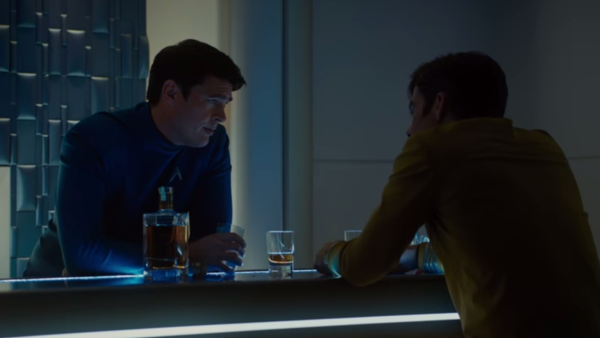Star Trek Beyond Review: 8 Ups And 2 Downs
1. It Deals With Legacy And Generations Perfectly

So Pegg has story and narrative structure down, although where he really wins is how he gives Star Trek back that philosophical side, looking at how the heroes in the 23rd century view themselves in the here-and-now while living in the shadow of mass human development and expansion.
Kirk laments how he’s now older than his father Chris Hemsworth ever got and there’s an overriding sense that, as the five-year mission enters its second half, they’re beginning to drift into emptiness; there's comments that things are feeling episodic. Conversely, the villain longs for the days when space travel was wracked with conflict, motivating a plot that embraces using the past while looking to the future.
It’s nice as 50th Anniversary celebration, not dissimilar to what Bond did with Skyfall, and the handling here isn't just fitting for a show that was always about hope for the future, but sets a baseline that the movies can just run and run from.
One of the most effective ways this is done is with the tribute to Leonard Nimoy – the lack of Ambassador Spock is dealt with so delicately in the film and informs Commander Spock’s arc, but also acts as a representation of how the franchise will go forward.